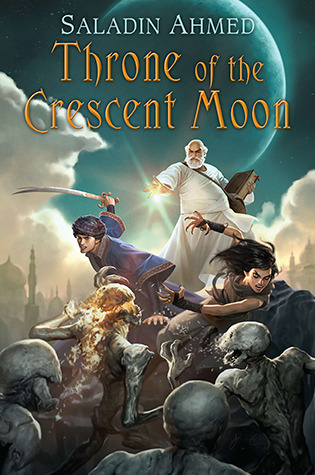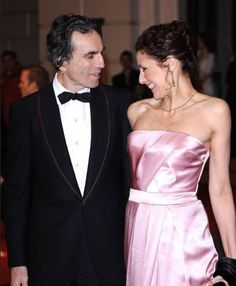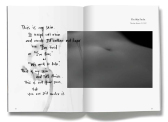English is a demanding language to master. Our sloth-like mannerisms can make the poetic appear as a jumbled mass of words. Long involved sentences with no sense of direction except to fill the void on a blank sheet of paper rule the writing community. College students painstakingly try to weave a tale to reach a magical essay word count. Authors struggle to breathe life into their characters without describing in painstaking detail the contents of their shoe carousel. We overthink what we’ve written. Are we in tune with what we’re furiously typing minutes from a deadline? Are we slinging webs of word mastery or planting pretty jargon that we have no clue of its true usage just to make us feel smart? In George Orwell’s Politics and the English Language, he attempts to analyze how the English language has lost its grace and has strayed on the path to verbose words for no other meaning but to make the appearance that one is a learned scholar. While written in 1946, his words echo with truth in modern times.
 Merriam Webster expands and contradicts its official dictionary of the English language to include newly minted words and mourn the passing of others. Some new ones are perhaps bastardized versions of some long involved ancient word utilizing every letter in the alphabet. Dialects borrow from one another and lay the foundation. Languages evolve as civilization does the same but not necessarily in a positive direction. This is referenced in Orwell’s essay with the passage “Underneath this lies the half-conscious belief that language is a natural growth and not an instrument which we shape for our own purposes”. We are more likely to form a ‘new’ word through speech than on paper. A misspelled word on paper is just that. An enunciation error could give birth to some horribly deformed viral phrase. We’ve sprinkled magic fairy dust on that fly buffet because our pride demands it. As Orwell bemoans the use of overindulged words in 1946, his outcry for minimalistic tendencies has gone far beyond what he could have imagined in our modern age. We’ve crucified our language as if the twenty-six letters afforded to us is too much to slap together for cohesive words. Linguistics is a lost art to the three letter terms such as ‘LOL’ or ‘OMG’. Perhaps today he’d reevaluate his assessment on using a more complex vocabulary considering the bastardization of the coveted English language today.
Merriam Webster expands and contradicts its official dictionary of the English language to include newly minted words and mourn the passing of others. Some new ones are perhaps bastardized versions of some long involved ancient word utilizing every letter in the alphabet. Dialects borrow from one another and lay the foundation. Languages evolve as civilization does the same but not necessarily in a positive direction. This is referenced in Orwell’s essay with the passage “Underneath this lies the half-conscious belief that language is a natural growth and not an instrument which we shape for our own purposes”. We are more likely to form a ‘new’ word through speech than on paper. A misspelled word on paper is just that. An enunciation error could give birth to some horribly deformed viral phrase. We’ve sprinkled magic fairy dust on that fly buffet because our pride demands it. As Orwell bemoans the use of overindulged words in 1946, his outcry for minimalistic tendencies has gone far beyond what he could have imagined in our modern age. We’ve crucified our language as if the twenty-six letters afforded to us is too much to slap together for cohesive words. Linguistics is a lost art to the three letter terms such as ‘LOL’ or ‘OMG’. Perhaps today he’d reevaluate his assessment on using a more complex vocabulary considering the bastardization of the coveted English language today.
Orwell’s use of the word “politics” in his title is two-fold. This highlights how those in the political area toss lengthy sentences and words around like a tornado rending trees from the ground. It also is the definition, but not the first one we think, of the word ‘politics’. The two that he could be referring to are as follows:
Even with this knowledge, and his argument that a more concise language needs to be used, he himself overindulges in superfluous words to make his statement. It is almost as if he, too, suffered from a word count syndrome and enlisted the dictionary of metaphors and best forgotten words to fulfill his need. While there is truth to his assessment, making a point to simplify and to fail to execute just that is a bit disingenuous. He could, in truth, be verbally jousting for the sake of doing just that. What better way to prove a point than to use the very thing you argue against in your essay? Perhaps the real point is to know when simplifying better makes your point or if a broader language set is needed to reach your audience. His example of the translation of Ecclesiastes into modern English reminds me of an exercise my tenth grade English teacher had us perform. Armed with a dictionary and not much else in an internet-less age, we had to translate Beowulf into something our generation could understand. I attempted this assignment three times to get the correct word usage. In the end, like Orwell stresses, I comprehended the words I was not only modernizing but used the correct ones in the translation. Simplifying was the key and not overthinking what had to be done.
Through all the counterintuitive methods to state his point, in the end Orwell tells us simple ways to edit our want for long and tedious words. How we can shorten a sentence and still get our point across or express our opinions without sounding too clinical? He gives us six pointed ways to avoid making our point look like a billion Scrabble pieces on the floor and yet the last point is to not be afraid to break those rules. So even though he strayed from the very thing he warned against, he fulfilled his main point of how to better craft the written word. There will never be a true blueprint to how to achieve perfection. The world will ever change our language. One phrase in Politics and the English Language gives us warning to the folly of English— “but if thought corrupts language, language can also corrupt”. We might never fully master the English language but we cannot allow it to master us.
Advertisements Share this:





